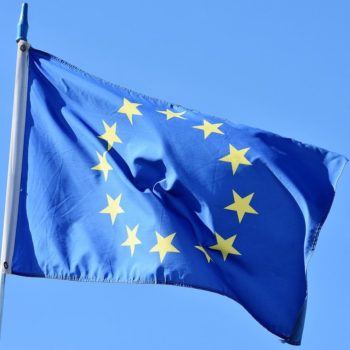Copyright in the Digital Single Market: Another Hard-Hitting EU Directive
by Mathew Broughton on 5th Apr 2019 in News

The European Parliament has once again made a seismic ruling affecting the digital landscape across the continent, with MEPs voting 348 against 274 (36 abstentions) to implement a series of hard-hitting internet copyright laws. Two provisions within the directive, articles 15 and 17 (confusingly these were changed last minute from articles 11 and 13), have generated the most controversy.
Article 15 rules that news aggregator sites, such as Google News and Reddit, should pay a fee to publishers when the aggregator publishes a link to their stories. Article 17, which has generated the most vociferous outcry, legislates that websites which host user-generated content are now responsible for removing material that infringes copyright.
In reflection of the protests that have been made against these laws, several concessions have been made including the exclusion of material including GIFs, memes, and ‘very short’ news snippets. However this raises a number of questions, such as what exactly constitutes a 'meme' in this case? These could make it particularly challenging to police, a problem observed with the introduction of GDPR. Moreover, the uncertainty may make it difficult for tech companies to comply with the changes, making it potentially very hazardous for advertisers if their ads appear on infringing material.
For additional insight into the legislation, and the issues it raises, ExchangeWire has spoken with Finn Raben, Director General, ESOMAR; Ken Leren, Founder, Marketing Town; Andrew Buckman, Managing Director EMEA, Sublime; and Andy Evans, CMO, Sovrn for their opinions.
Data collection behemoths & lack of ethical boundaries: How the EU copyright directive protects the democratisation of data

"One of the most popular phrases used to describe how the internet (and thus digitisation) has changed our lives, is the ‘democratisation of data’. What this is trying to encapsulate is that nowadays anyone, anytime, anywhere can 'publish' a comment, an opinion, a photo, a video clip or piece of music, onto one of the many digital platforms. And it is these platforms that are oft-regarded as the major successes of the digital age, be it Google, Facebook, WeChat, YouTube, or any of the myriad others.
"However, there are two key wrinkles in this depiction. The first is that these platforms – while purportedly offering a 'public service', are, in fact, data collection and analysis projects on a scale never previously countenanced; and their business model is predicated on selling that data or analysis to better target certain profiles. What has made these platforms the financial behemoths that they are, is that the data collection is uninhibited in any way, allowing them to collate immense data 'lakes' that they can then leverage, which leads us to the second wrinkle…
"'Traditional’ publishers were duty bound by the demands of rigour, provenance, and fair trade. Sources needed to be validated, facts needed to be proven, and if quoting or using other licensed material, the relevant fees needed to be paid. These (ethical) boundaries represented the publishers 'duty of care', which (to-date) have not existed in the digital ecosphere, and which many believe are the reasons for the rise of fake news, populism, and extremism.
"The digital platforms have long fought NOT to be classified as publishers, thus avoiding such (in their eyes) onerous duties of care. The EU Copyright directive is the European Union’s attempt to obligate the platforms to exercise these provisions of rigour and provenance. Among the most obvious implications are a) that content-sharing services must license copyright-protected material from the rights holders, and b) if (eg) a YouTube user uploads copyrighted content that has NOT been licensed, then YouTube shares the blame. On the one hand, the net impact of this legislation is that it strikes at the heart of the data collection project business model; but equally, the legislation has yet to show it can effectively track and monitor breaches and instigate redress mechanisms…
"Lots may have been done, but there is still lots to do.”
Finn Raben, Director General, ESOMAR
Both legislators & copyright holders should adapt to the digital world

"First and foremost, excessive regulation around copyright and patents inhibits innovation and growth – something our economy should be encouraging. In fact, there should probably be shorter terms in today’s world for copyrights and patents.
"Yet legislation on all sides is old and no longer relevant in a society where a lot of content exists online in a shareable format. But at the same time, copyright holders should now be looking to adapt to the digital world. For example, music producers should create music by having Spotify in mind – this is where people nowadays go to listen to music, so they should adapt their music to fit the needs of listeners. The same goes with photographers having to share their work through websites like WeTransfer and save their work in the cloud.
"However, that said, in recent times digital giants (Google and Facebook in particular) have been unfair, using their power to the detriment of others. We therefore welcome the new regulation in the hope that it will make it easier for innovators to make money at an early stage. In turn, we hope they will reciprocate by adapting to the digital world and adopt additional or new revenue streams."
Ken Leren, Founder, Marketing Town
New rulings create the potential for obstruction of free speech & opinion

"Although some might argue the implementation of Article 13 (now 17) is a step in the right direction, by enabling publishers to compete with tech giants, this ruling raises some serious concerns. As platforms become liable for user-generated content, rather than take the risk of legal action, they could block users from uploading content and filters will likely be introduced – creating the potential to obstruct free speech and opinion.
"As users become disgruntled at not being able to express themselves, they will lose trust in the freedom of information on the internet. In an ad-supported environment, it is vitally important that users trust the website they choose to browse. There is a lot of uncertainty surrounding the effects of this ruling, both concerning the user experience and the ad industry, and advertisers will need to prepare accordingly once this bill has come into full effect."
Andrew Buckman, Managing Director EMEA, Sublime
Censorship & restriction goes against what publishers stand for

"Whatever happens in the industry as a result of Article 13, we need to protect a free and open internet. The internet should act as a digital megaphone for free speech and a fundamental right for everyone. Although publishers rightly deserve recognition for their work, the censorship and over-restriction of content goes against what they ultimately stand for: the idea that anybody can conceive, create, and publish content to be consumed equally by all.
“While the aims of this law are undoubtedly noble, limiting freedom of speech on the internet takes away the level playing field on which small startup websites can compete on an equal footing with larger platforms, with both sides getting their message heard. It is, therefore, important we find a balance between governing larger social media platforms and protecting freedom of speech online."
Andy Evans, CMO at Sovrn








Follow ExchangeWire